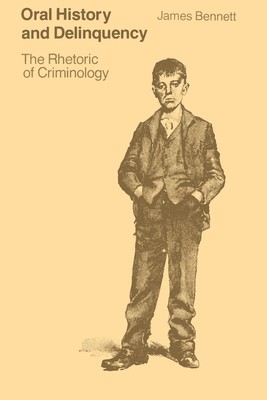
- We will send in 10–14 business days.
- Author: James Bennett
- Publisher: University of Chicago Press
- ISBN-10: 0226042464
- ISBN-13: 9780226042466
- Format: 15 x 22.8 x 2.1 cm, minkšti viršeliai
- Language: English
- SAVE -10% with code: EXTRA
Reviews
Description
From Henry Mayhew's classic study of Victorian slums to Studs Terkel's presentations of ordinary people in modern America, oral history has been used to call attention to social conditions. By analyzing the nature and circumstances of the production of such histories of delinquency, James Bennett argues that oral history is a rhetorical device, consciously chosen as such, and is to be understood in terms of its persuasive powers and aims. Bennett shows how oral or life histories of juvenile delinquents have been crucial in communicating the human traits of offenders within their social context, to attract interest in resources for programs to prevent delinquency. Although life history helped to establish the discipline of sociology, Bennett suggests concepts for understanding oral histories generated in many fields.
EXTRA 10 % discount with code: EXTRA
The promotion ends in 23d.07:27:09
The discount code is valid when purchasing from 10 €. Discounts do not stack.
- Author: James Bennett
- Publisher: University of Chicago Press
- ISBN-10: 0226042464
- ISBN-13: 9780226042466
- Format: 15 x 22.8 x 2.1 cm, minkšti viršeliai
- Language: English English
From Henry Mayhew's classic study of Victorian slums to Studs Terkel's presentations of ordinary people in modern America, oral history has been used to call attention to social conditions. By analyzing the nature and circumstances of the production of such histories of delinquency, James Bennett argues that oral history is a rhetorical device, consciously chosen as such, and is to be understood in terms of its persuasive powers and aims. Bennett shows how oral or life histories of juvenile delinquents have been crucial in communicating the human traits of offenders within their social context, to attract interest in resources for programs to prevent delinquency. Although life history helped to establish the discipline of sociology, Bennett suggests concepts for understanding oral histories generated in many fields.


Reviews